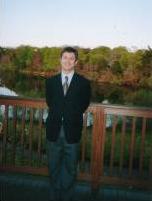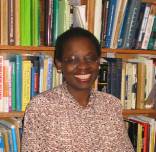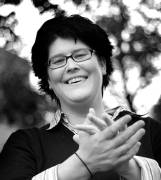
|
The Mathematical Association of America Maryland-District of Columbia-Virginia Section |
- Home
- History
- Main History Page
- Section History Document
- List of Past Officers
- Charter Members
- African-American Participation
- Stories from Section Members
- Section NExT Fellows
- Obituaries
- Smith Award Recipients
- Christensen Award Recipients
- Meritorious Service Award Recipients
- Undergraduate Award Winners
- Meeting Archive
- Past Meetings
- Talk Archive
- Old Section NExT Programs
- Newsletter Archive
- Meeting Minutes Archive
- Miscellaneous Documents
- Meetings
- Minutes
- Fall 2024 Executive
- Fall 2024 Membership
- Spring 2024 Executive
- Spring 2024 Membership
- Fall 2023 Executive
- Fall 2023 Membership
- Spring 2023 Executive
- Spring 2023 Membership
- Fall 2022 Executive
- Fall 2022 Membership
- Spring 2022 Executive
- Spring 2022 Membership
- Fall 2021 Executive
- Fall 2021 Membership
- Spring 2021 Executive
- Spring 2021 Membership
- Fall 2020 Executive
- Fall 2020 Membership
- Fall 2019 Executive
- Fall 2019 Membership
- Spring 2019 Executive
- Spring 2019 Membership
- Fall 2018 Executive
- Fall 2018 Membership
- Spring 2018 Executive
- Spring 2018 Membership
- Fall 2017 Executive
- Fall 2017 Membership
- Spring 2017 Executive
- Spring 2017 Membership
- Minutes Archive
- Newsletters
- Section NExT
- Awards
- Students
- Links
- Search
Spring 2006 Meeting at Loyola College
On April 7- 8, 2006 Loyola College hosted the Spring 2006 MD-DC-VA Regional Meeting of the MAA.
Invited Addresses
Stefan TreatmanNational Security AgencyWorkshop: Two millennia of cryptography in 60 minutes Abstract: The workshop will be a quick look at the first two millennia of cryptography. We'll talk about several important ciphers from history and demonstrate how each was broken. Together the audience will work through the cryptanalysis of several ciphers. We will also learn how the German Enigma device fits in historically in the development of manual cipher systems. Banquet Address: The Polish attack on the German Enigma Abstract: In this talk, I will describe the design of the infamous German Enigma device, which was used before and during World War II. I will present the miraculous, but little known attack developed secretly by Polish mathematicians in the 1930's. Alan Turing later modified this attack in the 1940's to help win the Battle of Britain and eventually turned the tide of World War II. Biographical Sketch: Stefan Treatman-Clark started as a mathematician at the National Security Agency in 1998 after earning his Ph.D. from the University of Michigan. He designed and taught a course in Cryptography for talented middle and high school students at Johns Hopkins' Center for Talented Youth summer program. Stefan has sung in the Master Chorale of Washington for seven years. He also loves solving and creating puzzles, especially those that drive Bud Brown mad. He and his wife Kate have a one-year old son named Jamie. 
Fern Y. HuntNational Institute of Standards and TechnologyInvited Address: Techniques for Visualizing Frequency Patterns in DNA Abstract: Many biological properties of a DNA sequence can be deduced from the frequencies of its constituent nucleic acids A,C,G,T and the subsequences they form. We will discuss some statistical properties of DNA that are amenable to visual and graphic display. Two examples among others to be presented are a visual representation of rare or avoided subsequences and an extension of Chargraff's rule. Biographical Sketch: Fern Hunt is a New York City native who attended public schools including the Bronx High School of Science. She majored in Mathematics and got an A.B. degree from Bryn Mawr College. Fern earned a masterís degree and Ph.D. from New York University's Courant Institute. She has taught at various institutions including the City University of New York, University of Utah and Howard University. She was recruited by NIST in 1993 and has been there ever since as a mathematician in the Mathematical and Computations Sciences Division. In 2000 she was awarded the Arthur Flemming award for outstanding achievements in science. In 2005 she won special recognition from Spectrum magazine in its Emerald Awards program for minority achievers in science. 
Laura TaalmanJames Madison UniversityInvited Address: Sudoku Variations and Research Abstract: Sudoku puzzles and their variants are linked to many mathematical problems involving combinatorics, Latin squares, magic squares, polyominos, symmetries, computer algorithms, the rook problem, knight tours, graph colorings, and permutation group theory. In this talk we will explore variations of Sudoku and the many open problems and new results in this new field of recreational mathematics. Many of the problems we will discuss are suitable for undergraduate research projects. Puzzle handouts will be available for all to enjoy! Biographical Sketch: Laura Taalman is an Associate Professor of Mathematics at James Madison University. She received her Ph.D in mathematics from Duke University, and did her undergraduate work at the University of Chicago. Her research includes singular algebraic geometry, knot theory, and the mathematics of puzzles. She is the author of a textbook that combines calculus, pre-calculus, and algebra into one course, and one of the organizers of the Shenandoah Undergraduate Mathematics and Statistics (SUMS) Conference at JMU. Her awards include the MAA Trevor Evans award for her jointly written article "Simplicity is not Simple: Tesselations and Modular Architecture", and the MAA Alder Award for Distinguished Teaching. |
Copyright © 2012 - The Mathematical Association of America
Please send comments, suggestions, or corrections for this page to Brian Heinold at heinold@msmary.edu
Last Modified: 03/05/2012 - 09:16pm